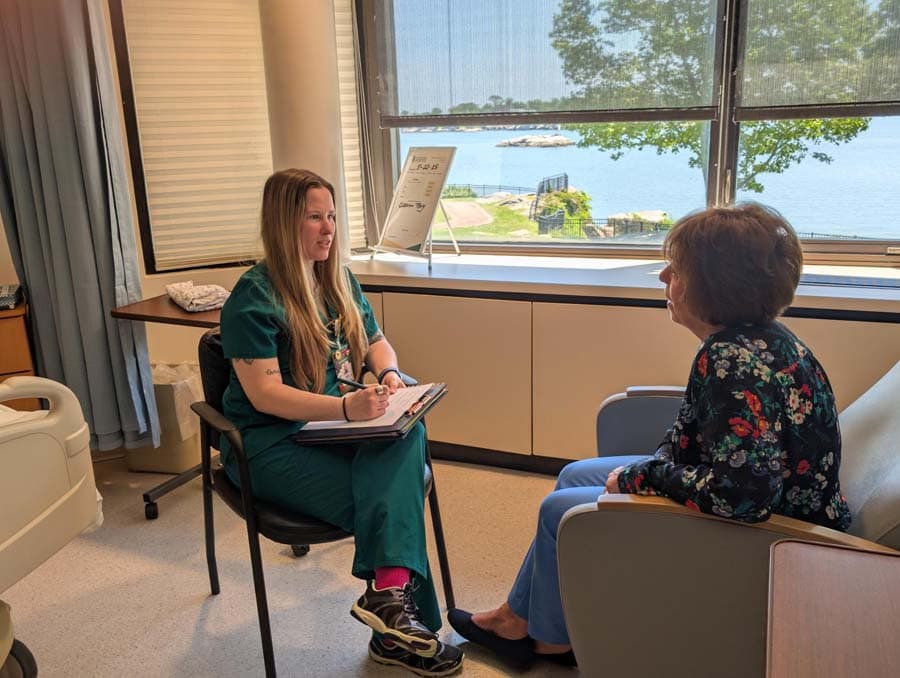Please view our updated COVID-19 guidelines and visiting procedures →.

It takes many professionals to provide the excellent care for which Connecticut Hospice is renowned. Previous blogs have recognized the critical role of nursing, arts and volunteers in patient care. This month, we are pleased to acknowledge the essential contributions of our hospice social work department.
Social work occupies a central position in the inpatient and outpatient hospice setting. Patients and families are at a critical juncture in life; emotions and the need for psychosocial care are intense. Reactions to terminal illness and impending death include fear, depression, denial, anger and anxiety. Long standing patterns of family dysfunction and the patient’s need for autonomy can further compound and complicate already complex end-of-life care issues. It is this environment of physical and emotional turmoil the social worker confronts, acting as a guiding and stabilizing force to help patients and families navigate this most difficult human experience.
The role of a hospice social worker is a multi-faceted one. At its core, it involves collaborating with other health professionals to improve quality of life, and to encourage preparedness and coping of patients and families dealing with life-limiting illnesses. This is initially achieved by completing a comprehensive psychosocial assessment, necessary to help patients and families understand care options related to their goals and life circumstances and to identify local services and resources for additional practical support.
The hospice social worker also functions as a therapist, addressing the emotional aspects of late-stage illnesses and helping patients and families come to terms with the end-of-life process. Supportive counseling helps families and patients process grief and loss, mitigates prolonged grief, and provides therapeutic emotional support for their well-being and comfort.

Finally, the hospice social worker advocates for each patient’s end-of-life wishes, recognizing the right of patients and families to self-determination. As an integral part of the interdisciplinary team, the hospice social worker provides psychosocial expertise, vitally contributing to the holistic approach to patient and family care in the hospice environment.
You will never be bored.
You will always be frustrated.
You will be surrounded by challenges.
So much to do and so little time.
You will carry immense responsibility and very little
authority.
You will step into people's lives and you will make a
difference.
Some will bless you
Some will curse you.
You will see people at their worst . . . and their best.
You will never cease to be amazed at people's capacity for
love, courage, and endurance.
You will see life begin . . . and end.
You will experience resounding triumphs and devastating
failures.
You will cry a lot.
You will laugh a lot.
Should you be interested in availing a loved one confronting the end of life with the social work, medical, nursing, arts, and other services offered by Connecticut Hospice, please call the admissions department at 203-315-8540.

As a not-for-profit, we depend on generous donors to help us provide customized services and therapies that aren’t completely covered by Medicaid, Medicare, or private insurance.
Please make a gift to help us sustain the highest standard of care.
Admissions may be scheduled seven days a week.
Call our Centralized Intake Department: (203) 315-7540.